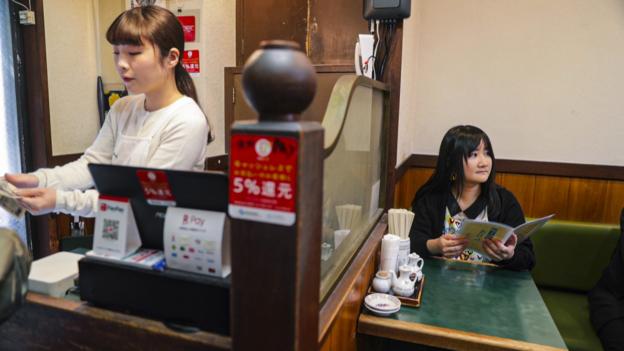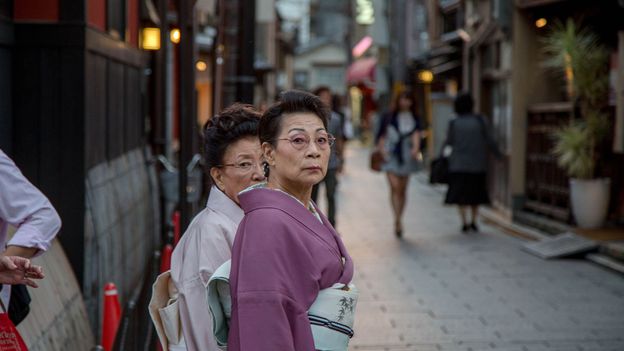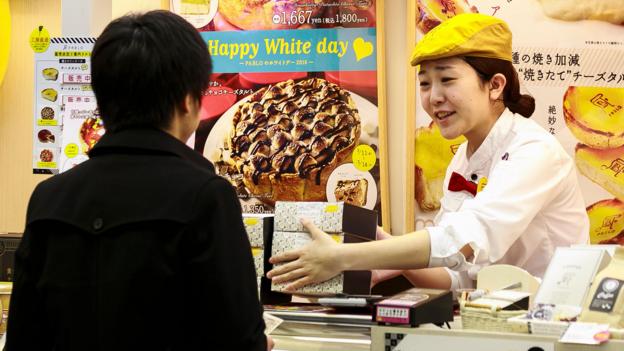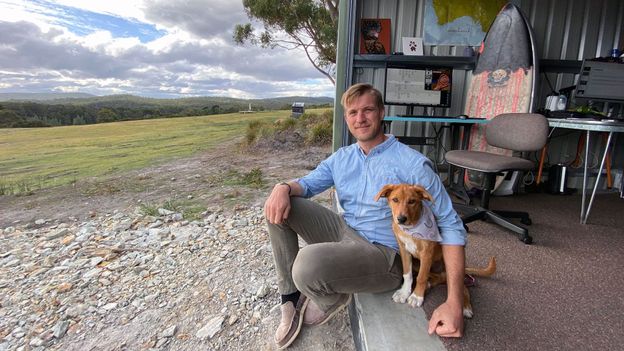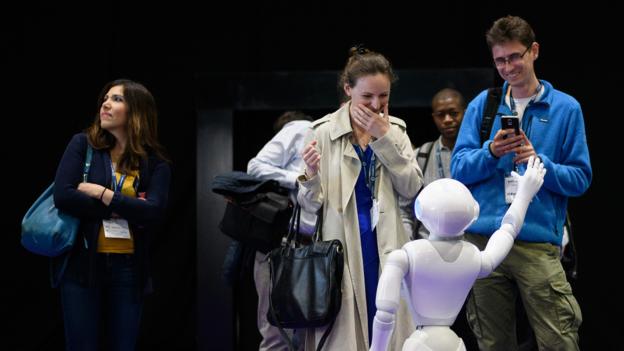Erika Miura, a 22-year-old Tokyoite who works in IT, is an ohitorisama veteran. Sitting at Bar Hitori, she says she’s rare among her friend group for wanting to do so many things by herself. “People get put off by the idea, but I go skiing alone,” she says. She also goes to the movies and karaoke alone, because it gives her more freedom, and says there are many solo services in Tokyo. Meanwhile Go Yamaguchi, a customer at 1Kara, says that when he does karaoke with his friends he has to wait for his turn. “I’d be embarrassed if I can’t sing well,” he adds. “I can sing whatever I want when I’m by myself.”
Ohitorisama also offers opportunities to those who are part of a “traditional” family unit, experts say. Arakawa’s research in 2018 found that up to one in three married people do solo activities like occasionally travel alone. Matsushita, who’s married with kids, agrees, saying: “I enjoy hitori karaoke alone, sometimes.”
When it comes to elderly singletons, Matsushita says that this group – especially women – have “psychological resistance” to being seen alone. But she believes that as they see the younger generation continuing to push boundaries things could change, especially as marketers of solo services know that pensioners are a demographic with both time and money.
‘The world is changing’
Needless to say, it’s not just Japan that is undergoing the kind of societal changes that have contributed to ohitorisama. As birth rates slump, marriage ages climb and populations age, many nations are seeing a rise in those leading single lives. Euromonitor International, an independent London-based market research company, released a study last year that estimates a record 128% growth in single-person households worldwide between 2000 and 2030.
“A ‘super solo society’, characterised by young people who never get married and the elderly who become single again after being widowed, will be the future of all countries, not only Japan,” says Arakawa. “It is no longer practical to focus a business solely on families.”
Of course, in nations where doing things by yourself – dining, drinking, exploring – raises fewer eyebrows, the phenomenon of “parties of one” enjoying everything society has to offer will be less pronounced. But in Japan, its relatively rapid evolution has become a hot topic.

